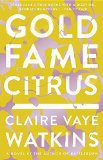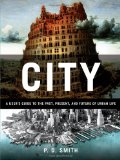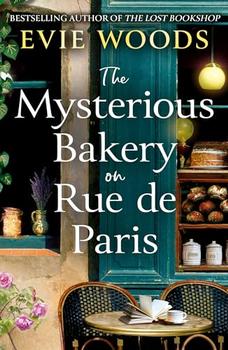Summary | Excerpt | Reviews | Beyond the book | Read-Alikes | Genres & Themes | Author Bio

In The World Without Us, Alan Weisman offers an utterly original approach to questions of humanity’s impact on the planet: he asks us to envision our Earth, without us.
In this far-reaching narrative, Weisman explains how our massive infrastructure would collapse and finally vanish without human presence; which everyday items may become immortalized as fossils; how copper pipes and wiring would be crushed into mere seams of reddish rock; why some of our earliest buildings might be the last architecture left; and how plastic, bronze sculpture, radio waves, and some man-made molecules may be our most lasting gifts to the universe.
The World Without Us reveals how, just days after humans disappear, floods in New York’s subways would start eroding the city’s foundations, and how, as the world’s cities crumble, asphalt jungles would give way to real ones. It describes the distinct ways that organic and chemically treated farms would revert to wild, how billions more birds would flourish, and how cockroaches in unheated cities would perish without us. Drawing on the expertise of engineers, atmospheric scientists, art conservators, zoologists, oil refiners, marine biologists, astrophysicists, religious leaders from rabbis to the Dali Lama, and paleontologists---who describe a prehuman world inhabited by megafauna like giant sloths that stood taller than mammoths---Weisman illustrates what the planet might be like today, if not for us.
From places already devoid of humans (a last fragment of primeval European forest; the Korean DMZ; Chernobyl), Weisman reveals Earth’s tremendous capacity for self-healing. As he shows which human devastations are indelible, and which examples of our highest art and culture would endure longest, Weisman’s narrative ultimately drives toward a radical but persuasive solution that needn't depend on our demise. It is narrative nonfiction at its finest, and in posing an irresistible concept with both gravity and a highly readable touch, it looks deeply at our effects on the planet in a way that no other book has.
According to the CIA Factbook, in 2007, for every 8 people who died, 20 were born. Depending on who's estimating that means that the world's population is growing at the rate of about 1 million people every 4 days.
Let's stop for a moment to contemplate this mind-boggling figure. Each week, the global population is increasing by more people than live in the entire of Philadelphia. Each month, the global population increases by almost that of New York.
Somewhere between when my father was born in the 1920s and today, the world's population has increased three-fold from less than 2 billion to over 6 billion. Sheer numbers combined with "advances" in technology have changed humanity from an intelligent mammal subject to the forces of nature but capable of shaping its immediate environment, to a bona fide force of nature that is changing the face of the entire planet, albeit inadvertently.
Free of rabid rantings and written in an immensely accessible style, Weisman has produced a well-balanced and fascinating book crafted to inform, not to panic. There are a myriad of books that examine one or another aspect of man's impact on the earth (rain forest depletion, global warming, water shortages et al) but few offer such a wide-ranging and entertaining overview as The World Without Us which, by imagining a world freed from the pest of humanity, offers a unique perspective on the environmental havoc we are causing...continued
Full Review
(690 words)
This review is available to non-members for a limited time. For full access,
become a member today.
(Reviewed by BookBrowse Review Team).
Did you know?
This "beyond the book" feature is available to non-members for a limited time. Join today for full access.

If you liked The World Without Us, try these:

by Claire Vaye Watkins
Published 2016
The much-anticipated first novel from a Story Prize-winning "5 Under 35" fiction writer; Named a Hot Fall Read by Vogue, Mashable, Vanity Fair, Pop Sugar, Kirkus, Hello Giggles, and Los Angeles Magazine.

by P.D. Smith
Published 2012
With erudite prose and carefully chosen illustrations, this unique work of metatourism explores what cities are and how they work. It covers history, customs and language, districts, transport, money, work, shops and markets, and tourist sites, creating a fantastically detailed portrait of the city through history and into the future.



Don't join the book burners. Don't think you are going to conceal faults by concealing evidence that they ever ...
Click Here to find out who said this, as well as discovering other famous literary quotes!